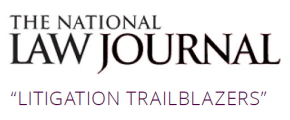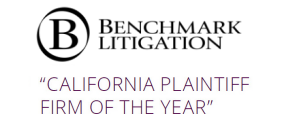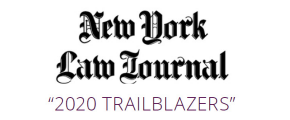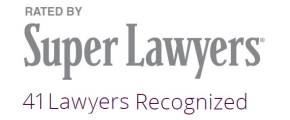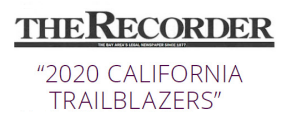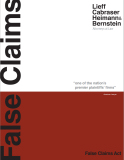False Claims Act Whistleblower Law FAQ
Top 3 questions to ask your whistleblower case lawyer (video)
A relator is someone who exposes misconduct, alleged dishonest or illegal activity perpetrated against the government. The alleged dishonest or illegal activity may be classified in many ways: a violation of a law, rule, or regulation, or a direct threat to public interest, such as fraud, health and safety violations, or corruption. False claims relators may make their allegations internally (to other people within the accused organization) or externally (to regulators, law enforcement agencies, to the media or to groups concerned with the issues).
The first False Government Claims protections were enacted in the United States in 1778. The Continental Congress declared it the duty of “all persons in the service of the United States, as well as all other the inhabitants thereof” to inform the Congress or proper authorities of “misconduct, frauds or misdemeanors committed by any officers in the service of these states, which may come to their knowledge.”
Later, as the Civil War devastated the United States, Congress enacted one of the first laws that protected individuals exposing fraud against the government, the 1863 United States False Claims Act (revised in 1986), which was enacted to combat fraud by military suppliers. The act encourages individuals reporting such fraud by promising them a percentage of the money recovered or damages won by the government and protects them from wrongful dismissal.
In 1986, Congress recognized that the government, with its limited resources, could not on its own combat all of the fraud that was being perpetrated by contractors and those who receive payments from the government for services. Congress reinvigorated the False Claims Act by strengthening its qui tam section to create incentives for private citizens to help the government fight fraud and recover monies owed to the government.
Relators frequently face reprisal, sometimes at the hands of the organization or group which they have accused, sometimes from related organizations, and sometimes under law.
The False Claims Act (FCA) is a federal law (31 U.S.C. Sections 3729 through 3733) that prohibits people from defrauding the federal government by knowingly presenting (or causing to be presented) a false or fraudulent claim to the government for payment. The FCA was designed to help U.S. taxpayers recover money stolen from the federal government.
False Claims Act cases involve a variety of government programs and/or contracts. Virtually any type of fraud in which the government has paid money, or has been billed for money, based on false claims will likely fall under the False Claims Act. Many successful False Claims Act cases have involved Medicare and military contracting fraud. Other successful cases have dealt with federal funding for environmental, anti-terrorism, energy, farm, and education programs.
Here are some examples of frauds that have been prosecuted under the False Claims Act:
- Billing the government for services and goods that were never rendered or delivered.
- Selling the government broken or untested equipment that fails to comply with contract specifications.
- Being overpaid by the government for a good or service and not reporting it.
- Skimming profits off the sale of municipal bonds.
- Mining or harvesting more natural resources from public lands than reported to the government.
- Lying to the government about the value of imported goods, or about where the goods came from.
- Lying to the government about whether a contractor is a member of a minority group or a veteran.
- Billing the government for research that never occurred or was falsified.
Any person or entity that has evidence of a fraud occurring against federal contracts or programs can act as a relator (report the fraud) under the False Claims Act. Typically, the relator is or was employed by the company engaged in the wrongdoing. The False Claims Act has express language forbidding retaliation by employers against relators.
The “qui tam” provision of the False Claims Act (fraud-on-the-government law) allows a person or persons to report the fraud and sue the wrongdoer on behalf of the U.S. government. In such cases, those exposing the fraud are referred to as “relators.” “Qui tam” comes from a Latin phrase meaning “he who sues for the king as well as for himself.” Typically, the relator is or was employed by the company engaged in the wrongdoing. The FCA has express language forbidding retaliation by employers against relators.
In 1986, Congress recognized that the government, with its limited resources, could not on its own combat all of the fraud that was being perpetrated by contractors and those who receive payments from the government for services. Congress reinvigorated the False Claims Act, a Civil War-era law, by strengthening its qui tam section to create incentives for private citizens to help the government fight fraud and recover monies owed to the government.
Here are some examples that apply specifically to the field of health care:
- Performing and billing the government for unnecessary medical procedures in order to increase the amount of Medicare reimbursement.
- Charging the government twice for a service or good that only should have been billed once (double billing).
- Billing the government for brand name drugs where generic drugs were actually used.
- Using multiple billing codes on medical tests in order to increase government reimbursement for the test (unbundling).
- Lying to the government about the true wholesale price of prescription drugs in order to receive a greater reimbursement.
- Lying to the government by reporting – via billing codes – that a patient’s illness and costs were greater than they actually were (“upcoding”).
- Charging the government for work performed by a doctor that was actually performed by a nurse or resident intern.
- Unfairly billing by nursing homes to Medicare for certain services.
- Accepting unqualified patients or improperly revoking a patient’s hospice admission by hospice providers to take advantage of Medicare.
If another person or the government has already filed a False Claims Act suit based on the same fraud you’re aware of, it is possible your suit could be dismissed. This aspect of the False Claims Act is sometimes called the “first to file” rule. That is why it is important to file your False Claims Act suit as soon as possible.
In addition to the benefit of helping to eliminate fraud against the government, there are important financial rewards. If a person who files a qui tam suit receives a favorable judgment or settlement in their case – thus allowing the government to recover money lost in the fraud – the person could receive 15 to 30 percent of the money that is recovered in the case. The government’s recovery could include up to three times the amount of money it paid out under the false claim, plus a penalty of $5,500 to $11,000 per false claim.
In order to be eligible to receive a portion of this payout, a person must have formally filed a qui tam suit.
Merely informing the government of the fraud is not enough under the False Claims Act.
Before you take any action, it is a good idea to consult an attorney who has experience handling False Claims Act cases and who can offer useful advice on how best to proceed and investigate your claims. If you decide to proceed with a qui tam case, your attorney can help you assemble as strong a case as possible. The more prepared you are before filing a suit, the higher your chance of success. It is also important not to discuss the fraud with anyone except your attorneys prior to filing your suit. If others hear of the fraud and file a qui tam suit before you, your suit is at risk of being dismissed. If the government discovers the fraud on its own and starts its own lawsuit or investigation before you file your qui tam suit, your suit will also be at risk for dismissal.
Under the False Claims Act, a qui tam suit must be filed: (1) within six years from the date of the fraud; or (2) three years after the government knew or should have known about the fraud, and no later than 10 years after the fraud. Despite this lengthy period, the general rule is that the sooner you file your case, the better.
Your employer should not know about the lawsuit and subsequent government investigation for at least several months or possibly even years. Qui tam suits are filed under seal and kept secret under the False Claims Act. Attorneys and government agents involved in investigating the allegations in a qui tam suit are not permitted to reveal any information about the suit while it’s being investigated. However, once the investigation is completed, the suit is made public and the employer/defendant is notified.
Your employer should not know about the lawsuit and subsequent government investigation for at least several months or possibly even years. Qui tam suits are filed under seal and kept secret under the False Claims Act. Attorneys and government agents involved in investigating the allegations in a qui tam suit are not permitted to reveal any information about the suit while it’s being investigated. However, once the investigation is completed, the suit is made public and the employer/defendant is notified.
Those who violate the False Claims Act can be liable for three times the amount that the government was defrauded, plus penalties of $5,500 to $11,000 for each false claim.
Each time the violator fraudulently billed the government counts as a separate claim. As a result, penalties can be an important component of an False Claims Act claim.
Many states have their own version of the False Claims Act to discourage frauds against state and local governments. Among those states are: California, Delaware, Washington D.C., Florida, Georgia, Hawaii, Illinois, Indiana, Louisiana, Massachusetts, Michigan, Minnesota, Montana, Nevada, New Hampshire, New Jersey, New Mexico, New York, Oklahoma, Rhode Island, Tennessee, Texas, Virginia, and Wisconsin.
Some states have laws that mirror the federal False Claims Act; others have laws limited to health care fraud; still others have unique provisions. It is important for your attorneys to be aware of these state-specific provisions.
The U.S. tax code has its own provisions that allow relators to obtain a reward for reporting tax fraud. As with the False Claims Act, the IRS False Claims provisions provide for relators to be awarded 15 to 30 percent of the amount recovered, plus triple damages.
The Dodd-Frank Wall Street Reform and Consumer Protection Act allows for any individual, or for two or more individuals acting jointly, to receive a reward if they provide the Securities and Exchange Commission (SEC), Commodity Futures Trading Commission (CFTC), or other agencies with information about violations of federal securities laws. Examples of securities laws violations that would fall into this category are insider trading, accounting fraud, bribing a foreign official (Foreign Corrupt Practices Act violations), and money laundering.
In order to receive a reward, the information turned over by the relator must lead to the government recovering $1 million or more.
If that requirement is met, the relator — the individual reporting the fraud — can receive from 10 to 30 percent of the amount the government recovers.
The Dodd-Frank provisions also offer False Claims Act-like protections against retaliation by employers.
Lieff Cabraser can provide valuable assistance for individuals considering reporting securities or tax fraud they know to be occurring against the government. As with False Claims Act suits, seeking an attorney’s advice prior to filing such a suit is highly recommended and can maximize your likelihood of success.
Unfortunately, relators are commonly subject to retaliation. However, the protections have dramatically expanded in recent years as a result of the passage of new laws and pro-employee interpretations of existing law. One example is the explicit anti-retaliation provision under the False Claims Act. The degree of legal protection a relator receives depends on the type of fraud, the role of the relator, and the type of company, among other issues.
It is important that you seek legal advice early and meet with counsel. Lieff Cabraser has a nationwide, top-rated employment practice dedicated to protecting employees who have been treated unfairly, including being retaliated against by their employers for challenging illegal practices. Our False Claims Act and employment attorneys can advise you on whether and how to serve as a relator and can protect you against retaliation.
Lieff Cabraser has an active practice representing those exposing fraud against the government in both federal and state False Claims Act cases. Our attorneys are highly experienced and have a track record of success with these kind of lawsuits. We will review your claim for free and with no obligation. Please call us toll-free at 1-800-541-7358 (San Francisco office, ask for attorney Nimish R. Desai), 1-888-321-1510 (New York office, ask for attorney Rachel Geman), or 1-866-313-1973 (Nashville office, ask for attorney Mark P. Chalos).
Contact us
Please use the form below to contact a whistleblower lawyer at Lieff Cabraser today, or call us toll-free at 1 800 541-7358. Our attorneys will review your inquiry promptly and in the strictest confidence without charge or obligation, and Lieff Cabraser agrees to protect your name and all confidential information you submit against disclosure, publication or unauthorized use to the full extent under the law.
Topics in False Claims Act Law
False Claims Law by Region
False Claims Act Brochure
